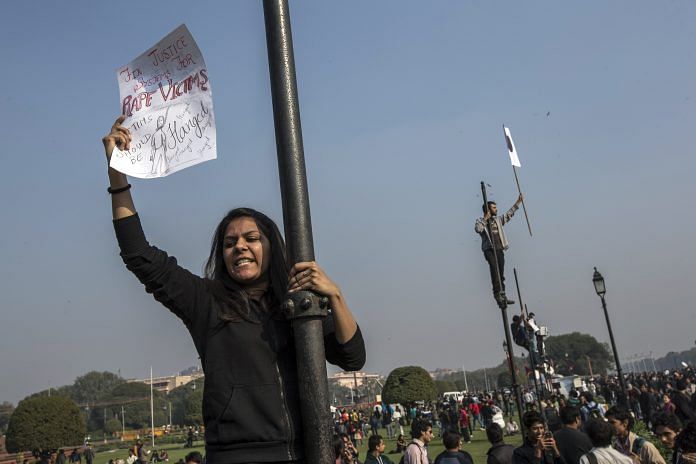The timing of execution is handpicked and more often than not suits the political narrative of the times.
Does it seem like justice delivered already? The death penalty awarded to the four convicts – Mukesh (29), Pawan Gupta (22), Vinay Sharma (23) and Akshay Singh (31) in the 2012 Delhi gang rape has now been confirmed at least thrice now.
So will they be hanged? Not yet, but the politics of death penalty will begin.
According to data by Project 39A, National Law University, Delhi’s research centre focusing on death penalty, 720 prisoners have been executed in independent India although thousands of death sentences have been meted out by courts. Currently, there are more than 400 such convicts waiting for the warrant in jails.

The reason the government cannot hang all those on death row immediately is because India has international commitments that does not allow it to handout death sentences although the legal provision is still in our books.
Even if you keep aside the morality argument of whether death penalty has any place in today’s society, death penalty is nothing more than a political execution.
The timing of execution is handpicked and more often than not suits the political narrative of the times. In the last six years, there have been three executions – all in terror-related cases.
This trend is in line with the 2015 recommendations of the Law Commission to abolish death penalty in India except in terror cases. The last non-terror execution was of Dhananjoy Chatterjee in 2004, who was convicted of brutally raping a minor.
Significantly, the power to show mercy is vested with those who hold constitutional posts without any checks. There are no rules on how presidents, governors can use their power. President Abdul Kalam sent all cases back for reconsideration except for one, but his successors Pratibha Patil and Pranab Mukherjee did not shy away from rejecting several mercy pleas.
What next for Nirbhaya convicts?
Legally, the battle is far from over for them. There is still a curative petition that can be filed, although its scope is very limited. After that the mercy petition charade begins, and there is no limit to the number of pleas that can filed.
But nothing stops the government in the meantime to go back to the trial court and seek a warrant of execution. In between all this, the convicts will count the unknown number of days to their execution.
So what does death penalty really mean?
Death penalty is touted as the panacea for crimes against society. It is repetitive to cite studies that show death penalty is no deterrent. Yet, we continue conversations around death penalty like it will bring some catharsis to our society. Many will argue that although they are against death penalty in principle, the Nirbhaya incident somehow justifies it.
What’s worse than a death sentence is actually keeping the convict on the death row and not letting him know when he will be executed. In this scenario, there is no sense of closure for the families of either the victim or the convicts.
Nirbhaya’s mother shares her grief every time there is a development in the case, painfully revisiting the horrific memories of her daughter’s death. It is equally traumatising for the families of the convicts. One can argue that the convicts deserve the pain but nothing justifies what their innocent families go through.
Last year, journalists found Vinay’s 15-year-old sister watching the news of her brother’s death sentence on TV. This year will be no different for her.




If the death penalty is a political execution, so is all other sentences. Jails are correction centers and all kind of criminals should be reformed there. However, rape cases are being taken as exceptional cases. They are like murder premeditated or without any plan. Rapes are being committed throughout the world. We should see what punishment is given there. In India, even capital punishments cannot check this as the majority of the rape case are nor premeditated. Some are committed to take revenge. It could be better if the guilty can be reformed for educating among people against this crime and other crimes. Now, the death penalty is being awarded to these criminals because of high sentiments of people. we are very sensitive to some crimes and not to others.
Inappropriate argument. If death penalty is not a detterent, all kinds of penalties also dont serve as a deterrent, the crimes keep happening. Then do we suggest to eliminate all penalties as they hv not acted as a deterrent ? The crime was henious n it is not correct to find fault with the SC verdict, as it is within the legal framework. The humanistic perspective is a completely different duscussion.
The article is soaked with political bias and vendetta. There could be no less justice for Late Nirbhaya and her family than hanging of the brutal rapists! Of course the entire country is waiting for their execution and when the process is near completion then questioning it and giving it political colours could only be a work of a diseased mindset.